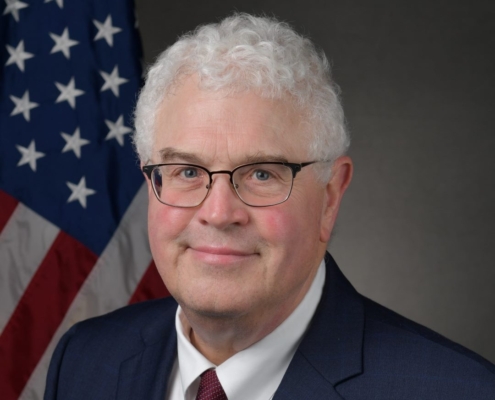Happy New Year from Pioneer Institute
/0 Comments/in Featured /by Editorial Staff Share on Facebook
Share on Twitter
Share on
LinkedIn
+
We hope you are taking time to celebrate and find peace during this season. Thank you for your support for Pioneer, which has helped us stay focused on steering the state’s debate on the pandemic response, and making progress on our key policy objectives. Here’s to a great 2021 for Massachusetts and the country.
Recent Posts

New England Short Circuit: Distorted Incentives Drive Energy Prices Up and Reliability Down
Joe Selvaggi talks with Travis Fisher from the Cato Institute about the rising costs and increasing fragility of the New England power grid, as green capacity incentives distract from neglected infrastructure.

UK’s Prof. Richard Holmes on Coleridge, the Ancient Mariner, & Poetry
Prof. Holmes delves into the life and literary legacy of Samuel Taylor Coleridge, one of the most significant poets of the Romantic era. Holmes offers a comprehensive overview of Coleridge's early education, highlighting how classical learning deeply influenced his worldview and writings.

Controlling Drug Prices: Costs and Benefits of Direct Negotiation with Big Pharma
Joe Selvaggi talks with Bill Smith, Director of the Life Sciences Initiative at Pioneer Institute, about the Inflation Reduction Act’s impact on drug pricing negotiations and its potential effects on drug development, consumers, and taxpayers.

NYT’s Anupreeta Das on Bill Gates, Microsoft, & Tech Billionaires
NYT’s South Asia correspondent, Anupreeta Das discusses how she became interested in writing her acclaimed biography, Billionaire, Nerd, Savior, King: Bill Gates and His Quest to Shape Our World, emphasizing Gates’ corporate and philanthropic influence on our era.

Harris’ Tax Vision: Policy & Politics
Joe Selvaggi talks with Tax Foundation Vice President William McBride about the details and potential effects of the tax policy proposed by Kamala Harris's presidential campaign

National Alliance’s Starlee Coleman on Public Charter Schools
Starlee Coleman discusses her role as CEO of the Texas Public Charter Schools Association, highlighting the growth of charter schools in Texas, as well as the broader efforts to expand school choice.

Digital Privacy Divide: Can Law Enforcement Google Where You’ve Been?
Joe Selvaggi talks with Cato Institute legal fellow Brent Skorup about the split in the court of appeals over the Constitution's 4th Amendment protections concerning law enforcement's search of location tracking data.

American Bar Association Elects President of the Pioneer Law Center as Vice Chair of Judicial Division
The Hon. Frank J. Bailey (ret.) will Advance to Chair in 2026
(Boston,…

Pioneer Institute: 340B Hospitals Does Not Necessarily Translate to Charity Care
Review of Becker’s List of Health Systems with Strong Finances…

Houston Supt. Mike Miles & Urban School Reform
Mr. Miles reflects on his lifelong dedication to public service, starting as a soldier, then a diplomat, and later as an educational leader. He shares insights into his family background and formative experiences that shaped his commitment to serving the public.

Housing Bond Bill: Could Billions Better Bay State Cost of Living
Joe Selvaggi talks with Pioneer's Senior Housing Fellow, Andrew Mikula, about the recently passed $5.2 billion bond bill, discussing its key features and how it might impact the supply and cost of homes in Massachusetts.

Dr. David Heidler on Andrew Jackson & American Democracy
Dr. David Heidler discusses the transformative period of Jacksonian Democracy, from 1829 to 1837. He explores the political changes, sectionalism, and reforms that characterized the era, alongside the controversial figure of Andrew Jackson, whose volatile nature and strategic political management propelled his rise and image.

Ruinous Red Tape: Epic Cost of Unchecked Federal Rule Making
Joe Selvaggi discusses the emergence of the massive, costly, and rapidly growing register of federal rules and regulations with Competitive Enterprise Institute’s Wayne Crews.

MIT’s Nobel Winner Joshua Angrist on the Economics of Education & Charter Public Schools
Prof. Angrist explores the controversies and his motivations behind studying K-12 education, emphasizing what policymakers often overlook about education and labor markets. He discusses his groundbreaking research on charter schools, highlighting how his findings have influenced policymakers. Angrist also talks about his Nobel-winning work on the analysis of causal relationships in economics and the innovative research currently underway at Blueprint, his lab at MIT.

Property Tax Reassessment: Beleaguered Buildings Bear Burden of Boston’s Burgeoning Budget
Joe Selvaggi talks with Marty Walz, the interim president of the Boston Municipal Research Bureau, about more viable, long-term alternatives to Mayor Wu’s property tax classification proposal.

Stanford’s Arnold Rampersad on Jackie Robinson
Stanford University Prof. Arnold Rampersad, author of Jackie Robinson: A Biography, discusses the life and legacy of Robinson, the hall of fame baseball player and history-changing civil rights leader.

Registering Republican Realignment: GOP Convention Showcases Conservatism’s New Direction
Joe Selvaggi talks with the CATO Institute’s Dr. Norbert Michel about the shift in the Republican vision and policy goals from decades past, as reflected in the nominees and guest speakers at the 2024 GOP Convention.

Study: U.S. Immigration System Limits Benefits Foreign Students Could Provide
Slow, inefficient system that discourages entrepreneurship puts U.S. at a competitive disadvantage



